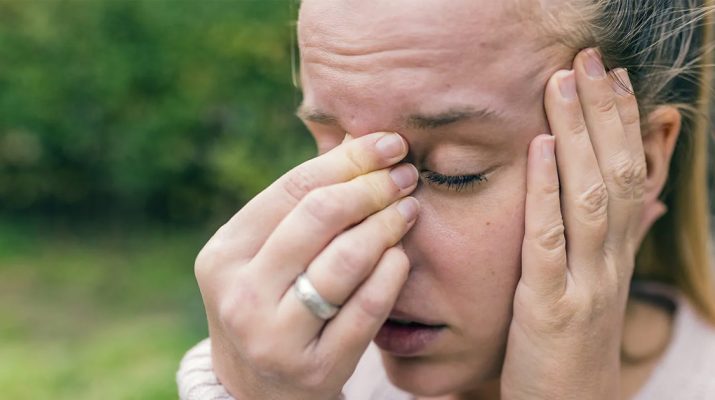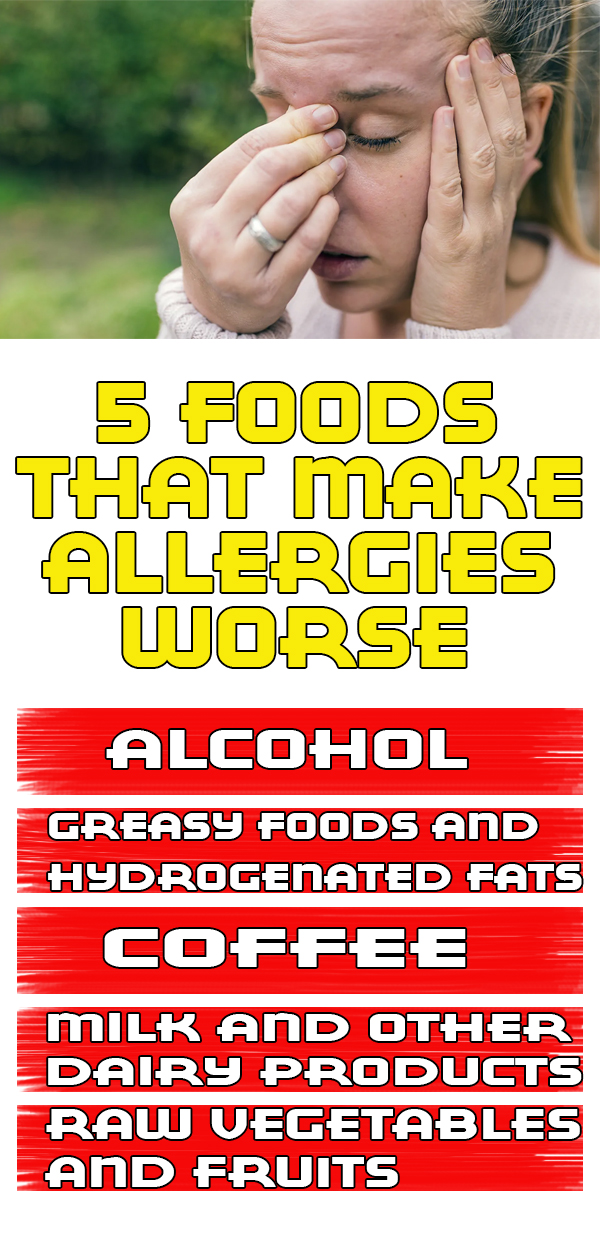Allergy season is one of the most hated and feared times of the year. While spring brings warmer days and beautiful flowers, the sheer amount of destruction caused by the rampant pollen daily makes allergy season one of the worst times of the year for some people.
Avoid Allergies: Watch Out For These 5 Foods
Try as you might you can’t escape the pollen that spring brings. The weeds, trees, and grass that are responsible for these allergy attacks are unavoidable.
As an allergy sufferer, you may be tempted to book the next flight out of town, but this isn’t the only way to rid yourself of your symptoms. In addition to taking over-the-counter medication, you can change the way allergies affect you by staying away from foods that trigger these allergy symptoms the most.
Read on to learn how to avoid allergies by watching out for the following five foods:
1. Alcohol
While you may not consider alcohol a food in the most literal sense, as part of your diet, alcohol can set your allergies off like nothing else.
As alcohol causes immediate inflammatory responses in the body, this leads to a slowing down of your metabolic processes which eventually leads to blockages in the vascular system.
Essentially, alcohol can trigger excess congestion in your neck and head. If you’re already struggling with congestion as a result of your allergy symptoms, alcohol will exacerbate this.
In addition to your excessive mucus, alcohol requires extra energy to be processed properly in the liver. Adding alcohol to your diet only serves to rob your body of the energy it needs to clean your blood and clear out the mucus buildup. In the event that your body is unable to properly expel the alcohol, it will likely remain in your system as fat or cholesterol.
Moreover, when alcohol doesn’t leave your system, the extra sugars that are left over can turn into material for mucus and this is how the body can release the excess. However, if you’re already severely congested, any alcohol will further compound these issues.
Planning to drink alcohol anyway? Escape the overly stuffy nose and other symptoms by drinking lots of water before bed. Be sure to stock up on your Vitamin C as well so your liver has extra help to do its job of detoxifying your blood.
2. Greasy Foods And Hydrogenated Fats
We’ve all heard that greasy food is hardly the healthiest food choice, but this is especially true for someone experiencing allergy symptoms as oils like hydrogenated fats and the oils found in these deep fried foods can’t be used by our bodies.
The more you consume this deep-fried food, the more mucus the body will produce. As these oils can’t be utilized by the body, mucus acts as a vehicle for the body to release these fats.
For the average person, this uptick in mucus will hardly be noticeable. However, during this congestion-heavy time of the year, you should be extra careful to avoid triggering your body’s mucus production.
The unusable fats found in these fried foods will slow down your liver’s functions and accelerate your detoxification processes. In the event that your body isn’t triggered to produce more mucus, the hydrogenated fats will exit your system in another form—likely though loose stool or simply going on to be stored in your body as fat.
If you absolutely can’t get enough of fried food, consider purchasing an air-fryer. With this device, you’ll get the same delicious crunch that you know and love with fried food without all the unhealthy fats that your body will be left to process.
3. Coffee
It’s hard to believe that something as beloved as your daily cup of coffee can trigger such uncomfortable symptoms as congestion and other unpleasant allergy-related issues. While most people don’t know coffee’s role in their springtime afflictions, others are aware and choose to ignore it anyway.
Coffee affects the body’s hormonal and vascular systems. As coffee pushes our hormones into overdrive, our bodies become imbalanced. While this is a usual occurrence for coffee lovers, in the event of allergy symptoms, this imbalance can lead to unpleasant reactions.
In terms of the vascular system, coffee works to stimulate our adrenal glands. This can cause the face and head to become dilated and contracted. This results in our bodily fluids like lymph, blood, and mucus being pushed towards our head.
As these fluids lead to further sinus congestion and pressure, you are much more susceptible to developing sinus infections, chronic neck tension, and similar conditions.
If you’re dependent on coffee to the point that you can’t function properly without it, perhaps it’s time to adjust your sleeping schedule. For many people, coffee is used in place of getting adequate sleep. This is particularly true for people with allergy symptoms. As the body is working overtime to process all of the excess mucus, you need more sleep to garner enough energy. Even if substituting coffee for sleep works in the short term, it’s only harming your body the longer you do it.
4. Milk And Other Dairy Products
It’s no secret to most people that dairy affects mucus production. Even people that don’t have dairy intolerance will find that consuming dairy products and milk will have a negative effect at this time of the year.
While the symptoms of lactose intolerance are obvious for most people—gas, constipation, bloating, loose stool, and fatigue, individuals that are used to consuming dairy on a regular basis often forget its role in mucus production.
As your body is already going into overdrive trying to handle the congestion triggered by allergy season, adding in milk and other dairy products to your diet will likely make your situation much worse. However, when it comes to hard facts, the jury is still out on the indisputable connection to phlegm and milk.
What we do know for sure is that casein, a milk protein, can be found in the body’s mucus response. As casein breaks down into casomorphin, the casomorphin has opioid-like effects in the body. This triggers the mucus glands opioid receptors to respond.
This response may take the form of increased mucus production in the respiratory tract, as well as similar issues that further conflate problems with allergies.
Additionally, some other studies have shown that consuming dairy products actually works to thicken the mucus. Products like yogurt and cheese can make your mucus feel thicker, ultimately leading to further irritation. While you don’t have to completely avoid dairy items during allergy season, if you feel mucus drainage or are noticeably congested, try to limit your dairy intake.
5. Raw Vegetables And Fruits
Never thought you’d read an article suggesting you stay away from fruits and vegetables? If you are affected by seasonal allergies, you may want to make sure each fruit or vegetable you consume is cooked in some way.
The immune system can mistake plant proteins as pollen when these fruits or veggies are uncooked. Thus, eating these foods raw can cross a cross-reaction inside your boy. This sort of reaction will increase the allergy symptoms you feel, such as itching in the lips, throat, and mouth.
Destroy these triggering plant proteins by microwaving, canning, baking, or cooking your vegetables and fruits prior to eating them.
Remedies For Allergy Season
Even after kicking these five foods out of your diet, you will likely still have allergy symptoms. While these symptoms won’t last all year, it’s impossible to avoid allergies completely in these spring months. Try the following tips to limit your allergy symptoms:
- Block out AllergensDo what you can to limit your contact with allergens. During allergy season, be sure to keep all windows shut, put your air conditioner on “recycle” and do your best to replace your AC filter often.
- Shower at NightShowering at night helps to wash off any allergens that may still be clinging to your face and hair. This will prevent them from transferring to your pillows and bedsheets, allowing you to enjoy an allergen-free environment in your bedroom
- Wash Your Clothes FrequentlyTry to get into the habit of washing your clothes a bit more frequently to avoid bringing allergens back into your home. At the very least, have a clean set of clothes you can change into after coming in from the outside.
Final Thoughts On How To Avoid Allergies
As much as you can’t control the cause of your allergies, you can, on some level, control how your body reacts to them. Though everybody will have its own reaction to allergies, keeping this list of five triggering foods in mind will allow you to minimize the effects these symptoms have on your body.
Thankfully, this season won’t last forever, As you learn better ways to manage your allergies, you’ll find different coping mechanisms to get you through these spring days. Keep this guide handy to help you as you navigate this season and prepare for an allergy-free summer.


